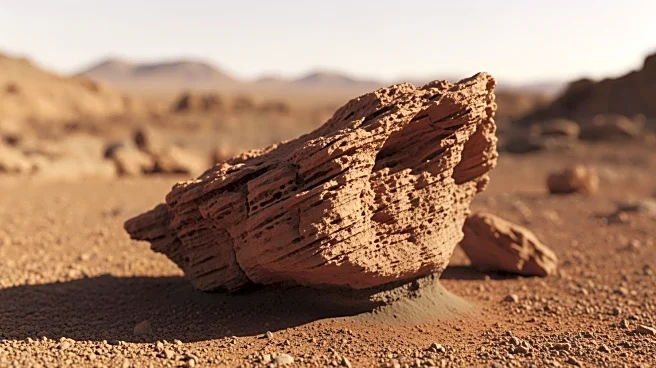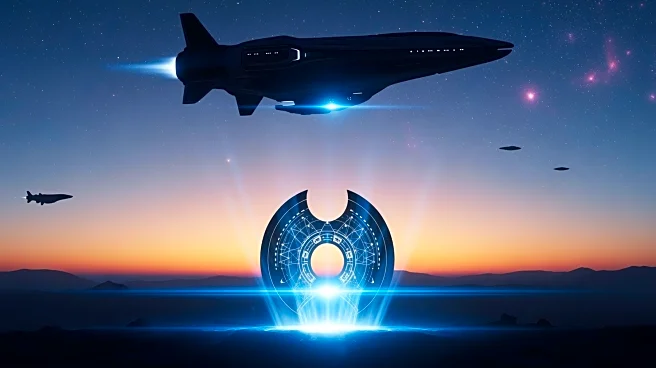What's Happening?
NASA's Perseverance rover has discovered an unusually shaped rock in the Jezero Crater on Mars, which may be a meteorite. The rock, named 'Phippsaksla,' is composed of elements typically found in iron-nickel meteorites, similar to those formed in the core
of large asteroids. This discovery is significant as it adds to the list of meteorites investigated by Mars rovers, including Curiosity, Opportunity, and Spirit. The rock's composition was analyzed using the SuperCam instrument, which examines rocks and soils using a camera, laser, and spectrometers. The discovery follows previous findings of potential biosignatures in Jezero Crater, suggesting the presence of past life on Mars.
Why It's Important?
The discovery of 'Phippsaksla' is crucial for understanding the geological history of Mars and the potential for past life on the planet. Iron-nickel meteorites can provide insights into the conditions and processes that shaped Mars' surface. The presence of such meteorites in Jezero Crater, a site with a history of water activity, could indicate the transportation of materials from other parts of the solar system. This finding also supports ongoing research into Mars' habitability and the search for signs of life. The analysis of meteorites helps scientists understand the planet's evolution and its potential to support life.
















